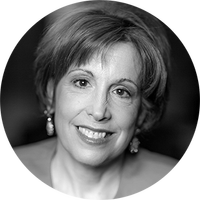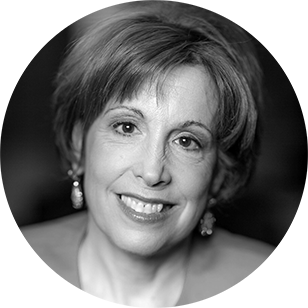Inside the mind of a marriage counselor
Sometimes, helping a couple make amends isn't the goal


Recently, during a consultation with a couple interested in therapy, the husband asked, "So Sherry, how many marriages have you saved?"
It's a reasonable enough question. One way to gauge my effectiveness as a marriage counselor could be by tallying the number of relationship rescues I've got under my belt. But in the 11 years I've been doing this work, I've learned that the best barometer of a marriage counselor's "success" is not as clear-cut as, say, a baseball manager who lives or dies by his win-loss record, or a plumber who either fixes the leak or can't stop the drip, drip, drip.
If only I could dislodge a wad of goop and presto! — a disastrously dysfunctional pairing would be unstuck, repaired, healed, good for the long haul, provided there are regular maintenance checks. But alas, the inner workings of the psyche are simultaneously way more complex and way more fragile than an appliance. And unlike appliances, the faulty yet crucial parts bedeviling humans cannot be "rewired" without their willingness and ability to make changes.
The Week
Escape your echo chamber. Get the facts behind the news, plus analysis from multiple perspectives.

Sign up for The Week's Free Newsletters
From our morning news briefing to a weekly Good News Newsletter, get the best of The Week delivered directly to your inbox.
From our morning news briefing to a weekly Good News Newsletter, get the best of The Week delivered directly to your inbox.
When I first became a marriage counselor, my goal was to help 100 percent of my patients stay together. As a child of holocaust survivors, the importance of not letting go of people in your life, no matter how troubled the relationship, was etched into my DNA. You never, ever gave up on loved ones.
These days, my greatest professional satisfaction is still found in helping couples learn healthier relationship skills that vastly improve their marriage. But sometimes, part of my job is helping couples realize that the best outcome for a relationship is that it come to an end.
For example, a pair probably shouldn't stay together if they're only in it for the kids' sake or out of habit or fear of being alone or because they are simply too dysfunctional to consider doing anything differently.
Of course, many couples need guidance, not a total gutting. Imagine a married couple with several children. The husband and wife are each a child of divorce who have sworn not to follow in their parents' footsteps. But they are mired in negative patterns, like needing not just to be right but to prove the other wrong, perennial grudge holding, and lapsing into passive aggression when hurt or angry rather than attempting to be vulnerable and voice what they really feel.
A free daily email with the biggest news stories of the day – and the best features from TheWeek.com
But underneath the tantrums and one-upping in this hypothetical couple lies a foundation of love, respect, and trust. Each person in such a pairing should be able to "own" his or her share of responsibility for the periods of turmoil and understand that their lack of positive marital role models had led to them repeating their parents' corrosive mistakes. That's where marriage counselors come in. As but one example, we can help couples through "mirroring" exercises that nudge them to really listen to each other's words rather than assume they know what the other thinks and feels. (This one takes lots of practice!)
I have indeed helped "save" marriages like this. But my initial desire to help couples never, ever give up, no matter how broken their connection, is in the rear view mirror. After all, I am a marriage counselor, not Houdini. Sometimes breaking up is the right thing to do.
Imagine a couple, for instance, who clearly hate each other. They are unable to listen to or have an ounce of empathy for one another. Their relationship is simply too damaged to function.
Even in cases like this, marriage counselors can help. We can show couples who can no longer make their relationship work how to get along well enough to co-parent, put their children's needs first, and hopefully conduct future romantic relationships from a healthier place. Should this outcome be considered a failure?
Let me offer one final hypothetical: Imagine a couple that has been married a decade, and comes to me as a last-ditch attempt to save their marriage. They had both previously battled substance abuse, and now that they're clean, they're not sure what they have in common. It may well be the case that once their dependencies are broken, they don't have much in common. Perhaps it's better to lovingly separate and remain supportive friends.
So, how did I answer that first couple, the one wanting to know how many marriages I'd saved before they committed to working with me? I leaned forward in my white leather chair and said, "Honestly, I don't keep count. My philosophy is to help couples stop getting in their own way and learn how to help themselves figure out the best possible way to conduct the rest of their lives, whether it's alone or together."
They hired me.
Sherry Amatenstein LCSW is a NYC-based marriage counselor and author of four books, including The Complete Marriage Counselor and the anthology How Does That Make You Feel? True Confessions from Both Sides of the Therapy Couch.
-
 Giorgio Armani obituary: designer revolutionised the business of fashion
Giorgio Armani obituary: designer revolutionised the business of fashionIn the Spotlight ‘King Giorgio’ came from humble beginnings to become a titan of the fashion industry and redefine 20th century clothing
-
 Kim Jong Un’s triumph: the rise and rise of North Korea’s dictator
Kim Jong Un’s triumph: the rise and rise of North Korea’s dictatorIn the Spotlight North Korean leader has strengthened ties with Russia and China, and recently revealed his ‘respected child’ to the world
-
 Crossword: September 13, 2025
Crossword: September 13, 2025The Week's daily crossword puzzle
